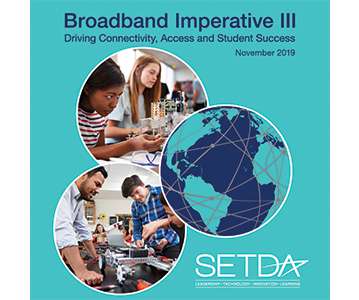U.S. K-12 Educational Technology Policy: Historical Notes on the Federal Role
Doug Levin
APRIL 21, 2016
Note that the last category is the most subjective and one might reasonably argue some reports (including those conducted under contract with the U.S. FY 2001: $450,000,000. Legislative Authorization: Title II, Part D (Sections 2401-2422) of the No Child Left Behind Act of 2001. Enhancing Education Through Technology Program.





















Let's personalize your content